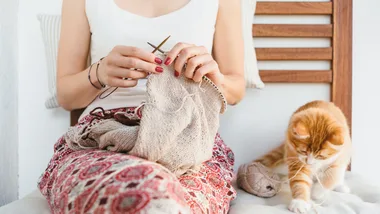In the excitement of getting a new pet it is sometimes easy to overlook the household items that can pose a hazard to your animal. Here’s a quick checklist for pet-proofing your home:
Most of us are aware of the danger some toys present to young children, but they can also be a hazard to dogs of all ages. Squeaky rubber toys are a favourite with puppies but check that the squeaker cannot be dislodged in play or by chewing, as it can get stuck in a puppy’s throat.
When playing ball with your puppy or adult dog, always choose a ball that is too large for the dog to swallow and never throw a squash or golf ball as they can damage a dog’s teeth.
Dogs love to retrieve, but sticks can splinter or impale the roof of the mouth so it is better to use a plastic item — small diameter PVC piping is an ideal stick replacement.
Old socks and stockings are great for playing tug of war but should not be left lying around as dogs have been known to swallow them, which then requires surgery.
Many puppies drown each year in backyard swimming pools or fish ponds. Most dogs can swim but not all dogs are able to find their way out of a pool and quickly become exhausted and drown.
Cats like to leap and attack curtain cords. Care should be taken to make sure that they cannot become caught and hang themselves.
Cats are able jump on to hot plates on the stove and also love to sleep in front loading washing machines or clothes dryers — always check before doing a wash!
- Insect sprays are hazardous to fish and incense may also leave a film on the surface of the water which kills the fish.
Budgerigars enjoy toys in their cages and will climb ladders, ring bells and admire themselves in a mirror for hours on end. Make sure that the toys do not have sharp edges.
Parrots of all types are smart little birds and invent their own games, including opening the door of the cage! A household peg, or for the real escape artists — a padlock, secures the door.
Birds should not be left to fly free when something is cooking on the stove, and should not be kept in the kitchen as fumes given off by some cooking appliances and products are toxic to them.
Medication, both human and animal, should be kept out of reach of pets.
Garden sprays and pesticides, especially snail bait, should be used with caution when pets are in the household. Areas of the garden where snail bait has been laid should be out of bounds to your pet, and containers of the bait should be kept on a high shelf where your pet can’t reach them.
Puppies and kittens, and sometimes other playful pets such as rabbits, may chew electrical leads so take care that these are always out of reach.
For more information about pet care, visit www.petnet.com.au










